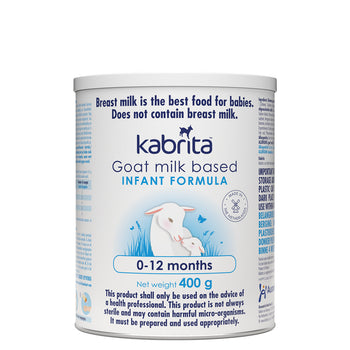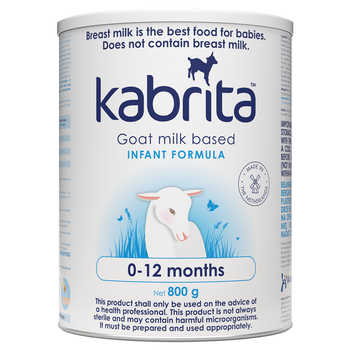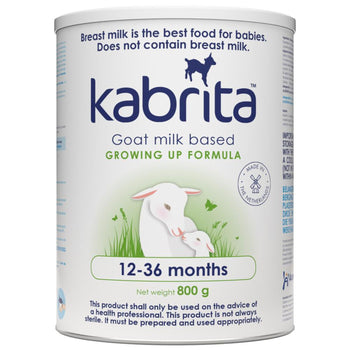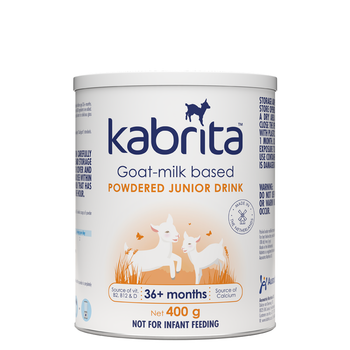Goat milk and cow milk - what's the difference?

The difference
Put them next to each other, and from the outside you won't see a big difference between goat's and cow's milk. The biggest and most obvious difference is of course that cow's milk comes from the cow and goat's milk from the goat. In addition, though, below the surface there is a difference in composition - including fatty acids, proteins, carbohydrates and minerals. We will discuss each of these further below.
Fatty acids
Research has shown that goat's milk contains more short-chain fatty acids than cow's milk. Short-chain fatty acids are easier for the intestines to absorb and are passed through the blood to the liver immediately, where they are processed directly rather than turned into fatty tissue. Long-chain fatty acids, on the other hand, cannot be processed directly through the blood. On the contrary, these fatty acids are high in fats that increase cholesterol. Goat's milk therefore contains a higher percentage of non-cholesterol-raising fatty acids than cow's milk.
Egg whites
With regard to protein content, there is little difference between both types of milk. However, they do differ in the distribution of the types of protein found in each. It can be observed, for example, that goat's milk contains less aS1 casein than cow's milk. So, the concentration of this specific kind of protein, which could be seen as an allergen, is lower than in cow's milk. Despite this difference, goat's milk should not be considered an alternative in the case of an established allergy to cow's milk.
Carbohydrates
In addition to fatty acids and proteins, goat's milk also consists of carbohydrates. Growing children need extra energy and they get it partly from carbohydrates, among other things. Note that goat's milk contains less lactose than cow's milk, so if you are slightly sensitive to lactose, you could try goat's milk instead. However, with serious lactose intolerance goat's milk is not an alternative, because it does contain some lactose.
Vitamins and minerals
Goat's milk is naturally rich in vitamins A, B2 and C, all of which are important for healthy growth and development. Fresh goat's milk also contains more types of minerals overall than cow's milk. Minerals are not produced by the body itself and must therefore enter the body through food. Bearing this in mind, fresh goat's milk contains more calcium, phosphorus, potassium, zinc and selenium than many other types of milk. All of these minerals are good for the body in different ways, such as promoting healthy blood cells and playing a vital role in bone formation.
Goat milk as a basis for follow-on milk and toddler milk
Goat's milk has been approved as a strong basis for baby food. The formula must comply with a legally required amount of nutrients, including carbohydrates, vitamins and minerals. Regardless of whether you choose baby food based on cow's milk or goat's milk, your child is guaranteed to receive the nutrients needed for proper development. Kabrita goat milk bottle feeding is enriched with all the minerals, carbohydrates and vitamins that your child needs to grow well.
Kabrita goat milk bottle feeding
Kabrita goat milk bottle feeding is a Dutch product and combines mild Dutch goat's milk with a modern composition in line with the latest scientific research. This creates a full-fledged bottle formula that supplies important nutrients in a comfortable manner for your child. Are you curious about our goat milk baby food?



